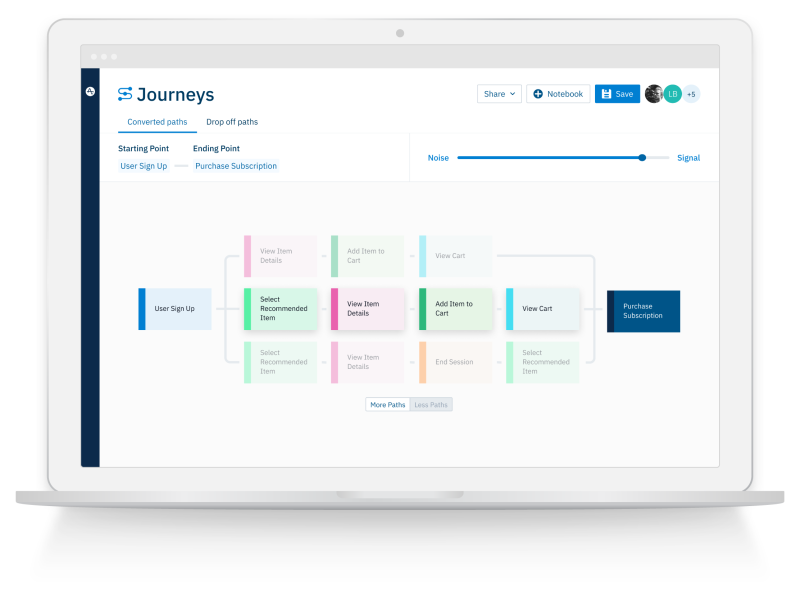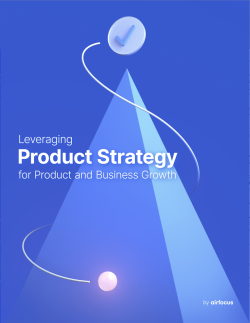Product Analytics and Digital Transformation - An Interview With John Cutler

Product Analytics and Digital Transformation - An Interview With John Cutler
The pandemic has accelerated the digital transformation in many, if not all, industries, and made it apparent that the product mindset could be helpful in adapting to this shift.
Ahead of airfocus’ upcoming roundtable with Amplitude - Why Product Management is Key to Digital Transformation – we’ve run a series of interviews with the speakers to learn their insights. First off, we spoke with John Cutler - Product Evangelist at Amplitude.
airfocus: Hello John. Could you tell us a bit about yourself and your journey in product management?
John: So I actually got my start in product management, when I dropped out of college, to start a video game company. It was a commercial failure, but it became a cult game, people really liked it. And then I was successively starting to get more sorts of jobs, broadly around tech. At the time, it’d just be “We need someone to come in and solve this problem and talk to developers or figure out this problem.” Over the years, the title became product manager! So my background ranges between ad tech and a lot of B2B SaaS companies: at Zendesk, Pendo, and now at Amplitude.
My role at Amplitude is a little strange but interesting. I work with a lot of customers, and future customers, and only 30% of our talk is about the product. The rest is about general approaches to product management, or being more data-informed. For a lot of companies, they haven't really started thinking about shifting a lot of projects to a more fluid approach where they can experiment, so I spend a lot of time focused on that.

airfocus: The pandemic has increased the pace of digital transformation, how well do you think organizations are managing with this shift?
John: The transformation journey is not a straight line. It's these big squiggles. A lot of companies are making a lot of advances in the last two years, and then find that they go forward two steps and back one step. Many may have been putting the piece in place diligently for this transformation, but hadn’t seen all the benefits. The pandemic then accelerated it and allowed them to experience the benefits of their work beforehand.
On the other hand, some other businesses were forced to just very quickly adapt, and some accumulated a fair amount of debt in their effort, maybe financial debt, but also organizational and technical and cultural debt.
airfocus: What role do you think that product management platforms play in this digital transformation shift?
John: There are now companies that have hundreds of products, and we never had that before. In reality, a lot of these companies just took the word project and then shifted to the word product. These very project oriented program management type systems, that weren't really designed for teams working more independently, or designed for teams with feedback directly from customers. And that doesn't work anymore.
For a lot of these companies, they're not quite there yet in terms of their teams being decoupled from each other and supporting each other with different platforms and everything. And at the same time, they still are trying to figure out how to give visibility to these program managers and to all the dependencies across teams. It means that the tools needed to adapt and change. So that's broadly my thoughts on what's required for product management software.
airfocus: And how about product analytics’s role in digital transformation?
John: At Amplitude, we see this very interesting idea of having a centralized IT team, or centralized analytics team, that does all the measurement for the business. And basically serves as an asking question and answer service. You know, someone comes and has a question, and you answer by showing them a dashboard with relevant data and analytics.
Now, if you have hundreds of teams working independently from each other, your options with analytics are either to have a big enough analytics team to be able to embed analysts on each team working as almost team members, or a mixed model where you extend some self service capabilities to the teams, and then support them with a centralized set of tools and platforms. A product team working in a digital-first product company is moving so fast, they don't have time to wait six weeks to get the answer to an analytics question. They just want to move very quickly.
airfocus: There’s been a shift from project management to product management in internal PM. Why do you think this is?
John: I think that's just the demands of scale. With centralized teams that control everything, you have to extend platforms to people, you have to be able to work. If I have to call you every day, and hire a project manager and hire five people to organize everything you and I do, we're never gonna make any progress together. But if you're building a design system team, and I'm on a product team, and generally, I use your design system work, we can move quickly.
In the large organizations that are still very product focused and product-led, the customer-facing teams are enabled by a full set of tooling, platform and infrastructure teams. The external teams get a lot of love. And then the internal teams are just oh, well, we're the internal team to do it. They don't have product managers, they don't have analytics. And they don't even have tools.
I think a really funny irony is that sometimes, especially in the enterprise, it's the internal teams that are the first to adopt Amplitude. They are more concerned whether the stuff is working, and they have less resources. It's the internal tooling and sort of DevOps and infrastructure teams that are maybe even ahead of the curve. They might have been forced to be because they have had to support all these teams!

airfocus: Do you think that digital transformation is realistic without utilizing product thinking and product tools?
John: It's realistic. I mean, you're gonna always need tools, you're gonna always need these things to support the stuff that you're doing. So that's going to be given. I think that the hardest thing for these companies is unlearning. Not necessarily learning. So it's kind of unlearning the structures and habits and other things that they had. They had very rigorous governance and very rigorous project management practices. They had very rigorous approvals necessary to ship anything. Now I know that they're adapting, and everyone's trying to figure this out. But it's the unlearning that counts. It's not conceptually difficult.
On March 24th at 12PM EDT, John will share further insights on product management amidst digital transformation in the roundtable discussion organized by airfocus and Amplitude.
Click here to register.
Valentin Firak

Read also


Create effective product strategy

Experience the new way of doing product management






